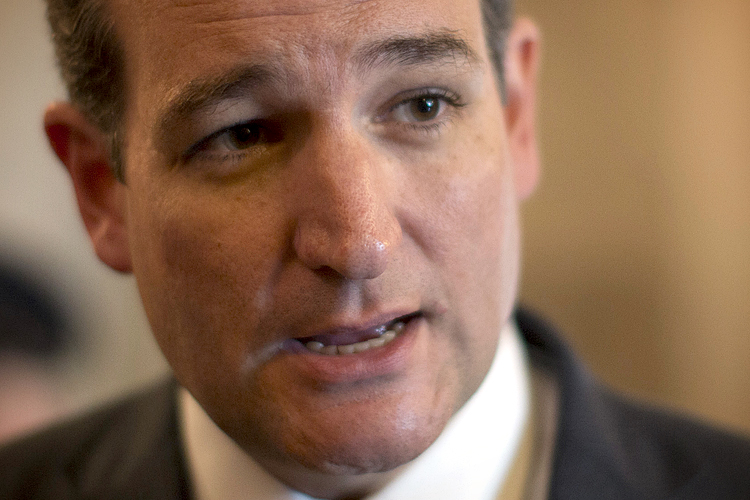Yes, Republicans not only have badly hurt their image in the shutdown and debt limit battle, but they have revealed bitter internal conflicts.
Stinks to be them, right? Right.
For now.
But don’t leap to any great conclusions about where things are headed in the future.
Too many critics of the GOP are doing exactly that right now. John Judis, for example, wrote in The New Republic this week:
There is a growing fear among Washington Republicans that the party, which has lost two national elections in a row, is headed for history’s dustbin. And I believe that they are right to worry.
No, they are not. There are good reasons why Democrats and Republicans have persisted as major parties since the Civil War, and why they’ve maintained roughly equal strength for a couple of generations now. It’s highly unlikely that’s going to change.
The reasons are pretty basic. First-past-the-post elections make two-party systems more likely; political scientists disagree about whether it’s really a “law” of politics, but certainly the incentives to switch from support of a fringe party to a major party are real and easy to spot.
Beyond that, the Democrats and Republicans have developed both legal and cultural weight that makes them virtually impossible to displace. Besides, both parties, right now, are about as strong as they have been in over a century (and the national component of those parties is the strongest it has ever been). It doesn’t mean they can’t crack up, but it does make it unlikely.
And for what would Republicans dissolve? Judis thinks the current round of infighting – which is certainly happening – shows that various groups in the GOP are no longer able to hang together, that the growth of radical Tea Partiers makes it impossible.
That’s possible, but it seems unlikely to me. In a major party in an enormous nation there will be some internal differences, but the current round of infighting is almost completely over tactics, not goals. And the idea that “today’s business lobbies may come to understand what the lobbies of the ’50s grasped — that the Democratic Party is a small “c” conservative party that has sought to preserve and protect American capitalism by sanding off its rough edges” is a pipe dream that Democrats have wished for decade after decade. It’s certainly possible that business will shift the share of money going to Republicans, or that some specific interests might flip to the Democrats, but none of that is going to get anywhere close to “dustbin” territory.
The truth is that today’s Republican Party looks about as close to homogeneous as a major party in an enormous nation can get. It’s very easy to imagine its differences dissolving rapidly during the next campaign, just as they did when a somewhat similar split appeared to open up during the Clinton presidency.
Nor is it necessarily the case that Republicans will suffer for their botched shutdown play. The next Congressional elections are a long time away; people forget. The current fight is even more certain to be ancient history by 2016, just as impeachment and the sorry state of the GOP during that episode were ancient history in 2000.
Judis thinks the splits in the Republican Party are similar to those the Democrats went through over civil rights and Vietnam, but even if that were true – and I don’t think the internal struggles in the GOP are even remotely similar at this point – they hardly spell doom. After all, Democrats managed to hold the House throughout the 1960s, 1970s and 1980s, usually with large margins; they also held the Senate for almost all of that time, and usually the majority of statehouses as well. Yes, they had a tough run in presidential elections, but those (other than 1968) were just as easily explained by economic fundamentals as they were by internal party difficulties.
I do believe that the Republican Party has become severely dysfunctional, but that matters mainly in governing, not electioneering. And I don’t think the dysfunction is really about internal differences; it’s far more about a combination of perverse incentives provided by the conservative marketplace, along with the unhappy influence of a handful of past Republican leaders.
But fading away or breaking up? No, that’s not what’s going to happen to the Republican Party.

